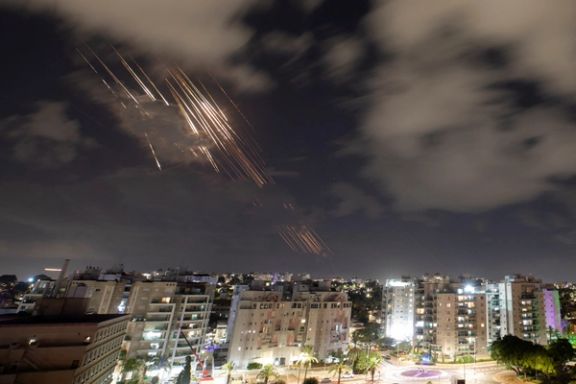Iran’s army chief says forces ‘fully prepared’ for more attacks on Israel

Iran’s top army commander warned on Monday that the military is fully prepared for more direct attacks on Israel as the two sides continue to exchange war-talk.

Iran’s top army commander warned on Monday that the military is fully prepared for more direct attacks on Israel as the two sides continue to exchange war-talk.
“If they [Israel] are in a rush to receive another True Promise operation [aerial assault], we are fully ready to deliver an appropriate strike — and collect on what they already owe us,” Major General Abdolrahim Mousavi, Commander-in-Chief of Iran’s Army, said during a military ceremony using the code name of Iran’s direct attacks on Israel.
Mousavi’s comments come amid a multi-front conflict between Israel and Iranian-aligned forces, including Hezbollah in Lebanon, groups in Syria and Iraq and the Houthis in Yemen, in the wake of the war in Gaza sparked by Iran-aligned Hamas's October 7 attacks on Israel.
Israeli and US officials have said that recent operations have weakened Iran’s regional capabilities, particularly following an Israeli airstrike on Iranian targets including air defense systems in late October, and a spate of attacks on infrastructure and leadership of Iran's strongest ally, Hezbollah, last year.
Responding to what he described as “rhetoric” from Israeli leaders, Mousavi dismissed the threats as bluster, saying the Israeli leadership “lacks the capacity to harm the greatness of Iran.”
He added that Tehran’s response, should conflict escalate, would bring “extraordinary challenges” for Israel and its allies.
The remarks echo recent comments from senior Islamic Revolutionary Guard Corps (IRGC) commander Ali Fadavi, who said in February that Iran would launch a third direct strike on Israel “in due course” — an operation dubbed True Promise 3.
Iran's first direct attack on Israel, Operation True Promise 1 on April 13 involved over 300 missiles and drones targeting military installations with minimal damage, retaliating for the killing of two Iranian generals in Damascus.
Operation True Promise 2 on October 1 followed with around 200 missiles targeting Israeli military facilities after the assassination of Iran-aligned militant leaders, including former Hezbollah leader Hassan Nasrallah and Hamas political chief Ismail Haniyeh.
Fadavi said that Iran had withstood external threats for over four decades, describing the United States and Israel as “the Great Satan and its partners.”
The phrase, a hallmark of the Islamic Republic’s revolutionary rhetoric, underscores Iran’s framing of its confrontation with the West as both geopolitical and ideological.
Despite the combative tone from Tehran, US and Israeli officials maintain that their policies of deterrence and sanctions are limiting Iran’s influence and delaying its nuclear ambitions.
US President Donald Trump, who has expressed his optimism over the ongoing indirect nuclear negotiations, which he says are preferred over threats of 'bombing' Iran, also reinstated the “maximum pressure” campaign aimed at curbing Iran’s nuclear program and regional activities.
"You cannot threaten Iran on one hand and claim to support dialogue on the other," Foreign Ministry spokesperson Esmaeil Baghaei said on several occasions since the negotiations began.